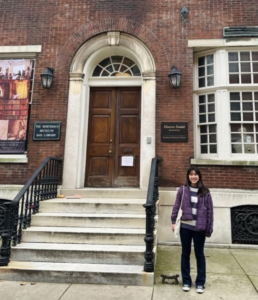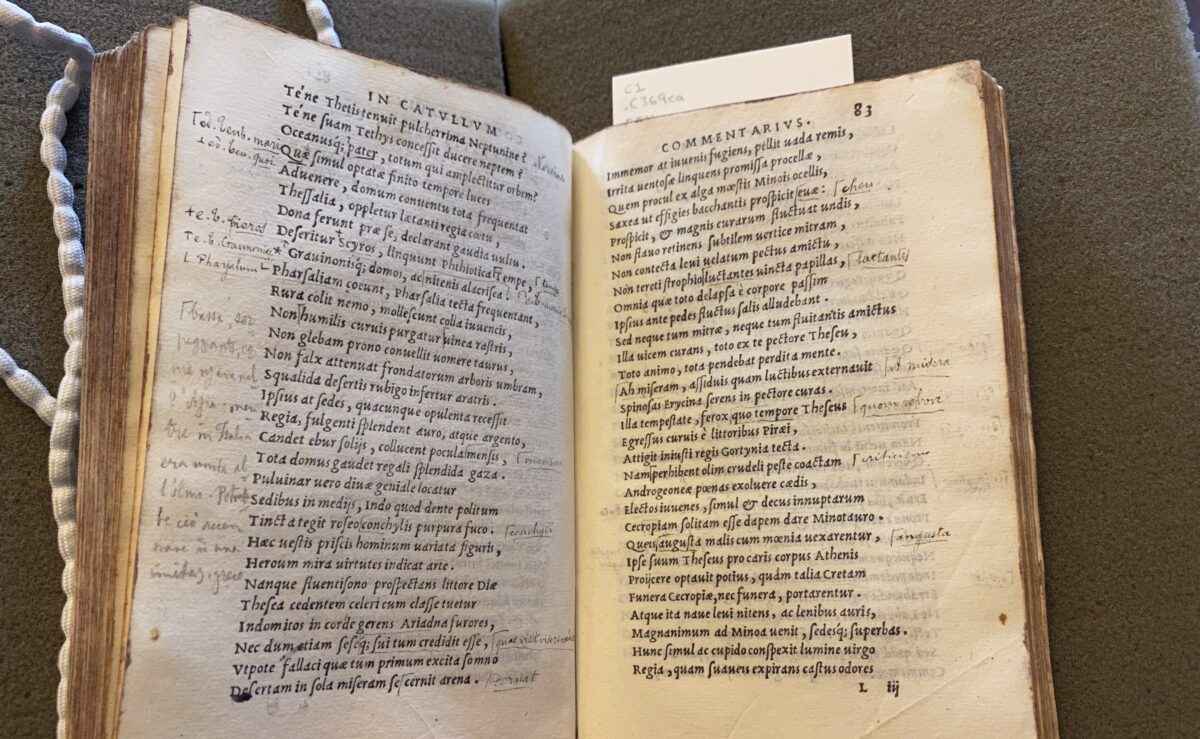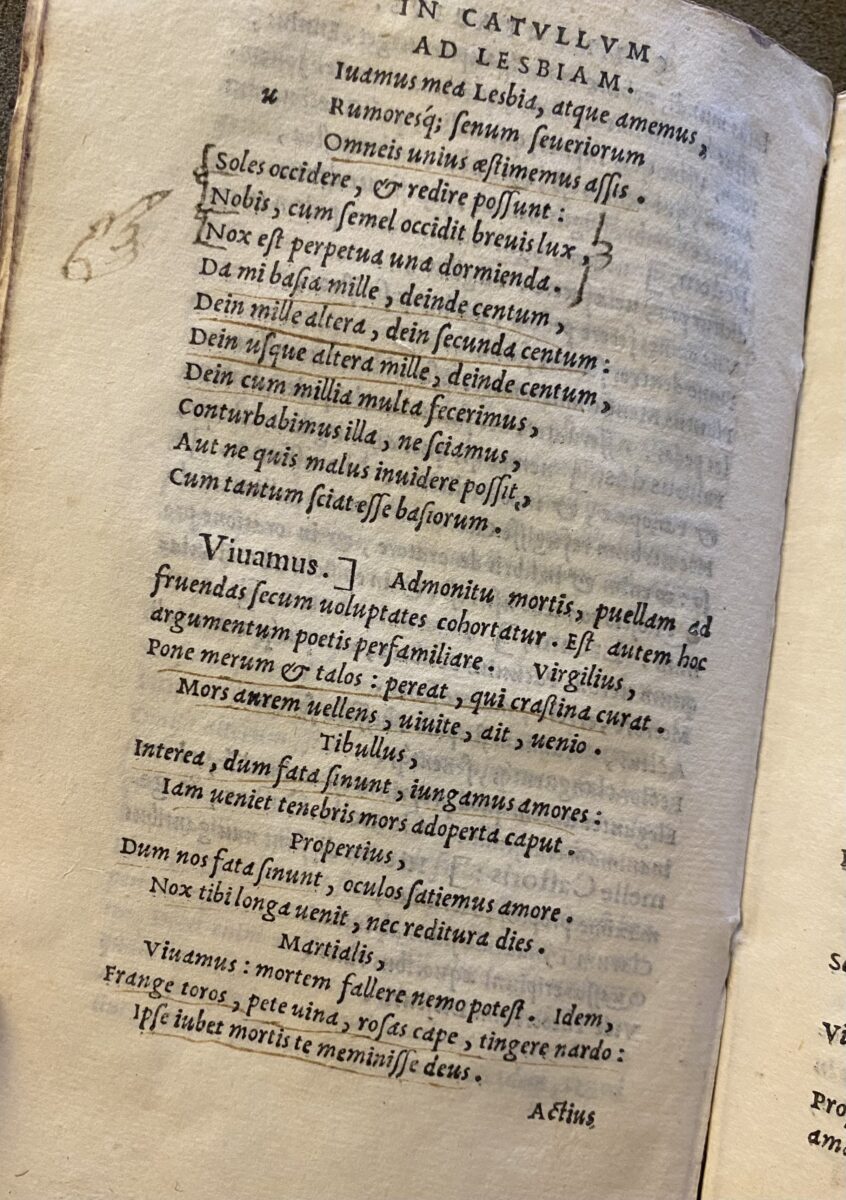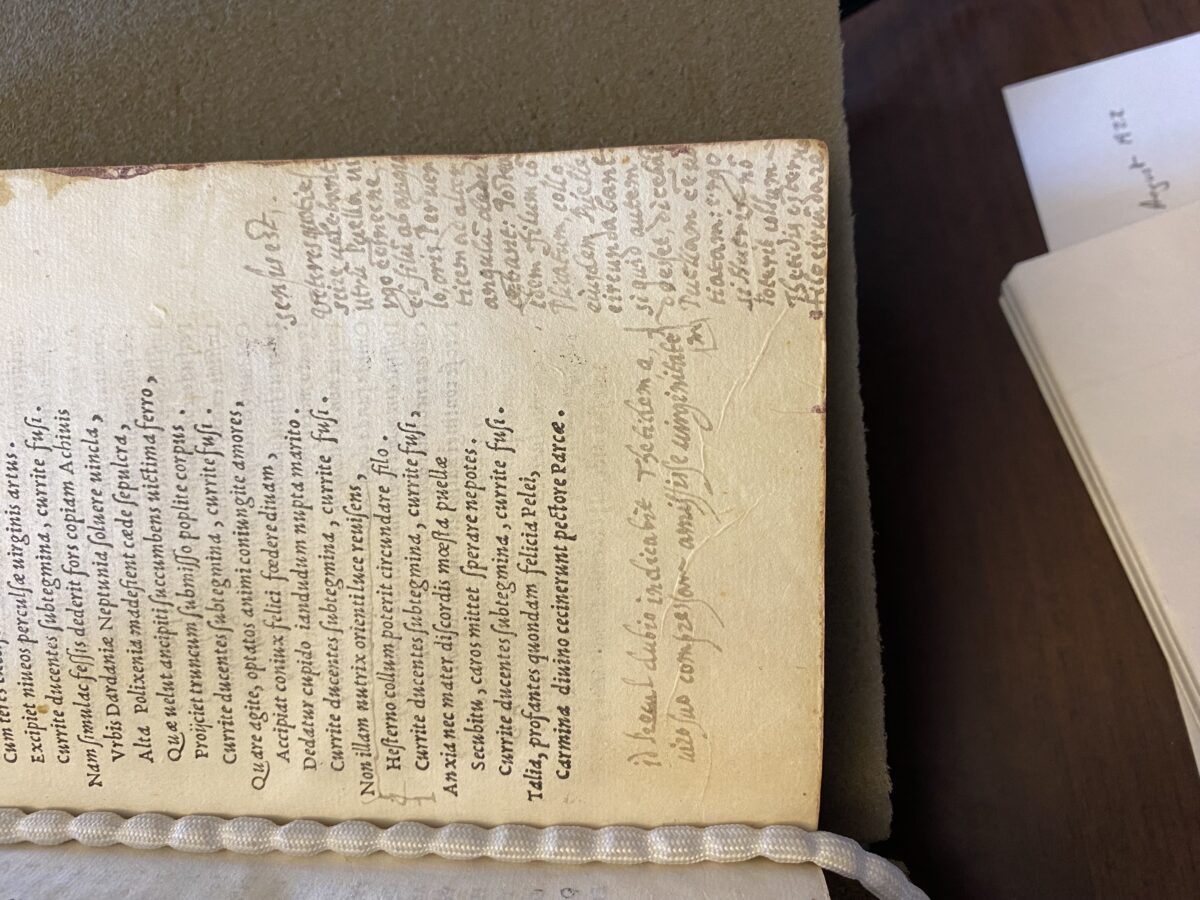
This blog post was written by Michelle Park.
The Rosenbach Museum & Library’s Reading Room is not only open for researchers; it’s open for everyone, and you don’t need to have experience in research to handle their historical artifacts.
In January, instead of going to normal classes, juniors at my school (Germantown Friends School) create a project in which we can pursue our interests or try new things. I spent my month with the Rosenbach researching their artifacts two days a week in the reading room and working with the marketing and development departments.
When I was planning out my January project, I didn’t have a specific direction for what I was going to research, and I was pretty intimidated by the idea of handling historical artifacts dating back hundreds of years. But when I was actually in the library and looking at the books, I found that is was easy to be drawn to my favorite stories and seeing their history.
Among the Rosenbach’s extensive collections, what stood out to me most was a 1554 edition of Poems of Catullus, edited by Marc Antoine Muret. Catullus was a Latin poet from the late Roman empire whose poems on intense emotions like love are still the interest of many Classicists today. There are scores of handwritten notes written in the margins, and I was intrigued by not only the content of Catullus’ writing, but also the reader’s annotations. Elizabeth Fuller, the Rosenbach’s librarian, said that I am the “first researcher at the Rosenbach and the first we know of anywhere” to have studied the annotations, which is exciting for me as an aspiring Classicist.
I have always loved studying Latin and Greek with my peers because of the genuinely fun community that comes with it, but as I have advanced in my classes, I’ve realized that ancient poetry and writing reflects the present day to an incredible extent. I am extremely privileged to be able to take these classes, and, as an Asian woman, I feel that it’s important for me to make the Classics more accessible to all groups of people, because Ancient Latin & Greek writing has a great impact on all of our lives. I want to continue to explore the connection between the past, present, and future while making the Classics available to everyone!
I have only taken my first few steps on my journey as a Classicist, and I am glad that I could translate to uncover more about this one annotator’s thoughts. I took a closer look at the annotations on Catullus 64, which is Catullus’ longest poem at 400 lines: a mini epic retelling about King Peleus & the sea-nymph Thetis’ marriage and Theseus’ abandoning of Ariadne. Greta Ham, a Latin & Ancient Greek teacher at GFS, was able to find that the annotation on Catullus 64 was actually a quote from Palladius Fuscus, an Italian humanist & teacher. However, Fuscus died in 1520, while this book of Catullus poems was published in 1554; it seems like Fuscus’ thoughts on Catullus 64 were supposedly influential on the annotator’s interpretation of the poem.
This opportunity has allowed me to accomplish something that I wouldn’t have been able to do until many years from now. To be 17 and uncovering new fragments of Latin is incredibly exciting for me. I’m honored to be given the opportunity of finding out what this one person’s thoughts were and knowing that I’m finding new content at all! This is a big step in my Classics journey, and it’s all thanks to the Rosenbach.
I encourage high school students, especially Classicists, to come visit the Rosenbach! It’s okay to not have something specific to research, and you don’t have to be a professional; it is a great way to learn about the history of literature firsthand and delve deeper into the story around a story, and maybe, like me, you’ll have an amazing opportunity to pursue your passions!
Thanks so much to the Rosenbach Museum & Library for having me in January 2023 – I could not have asked for a more productive and eye-opening month!



